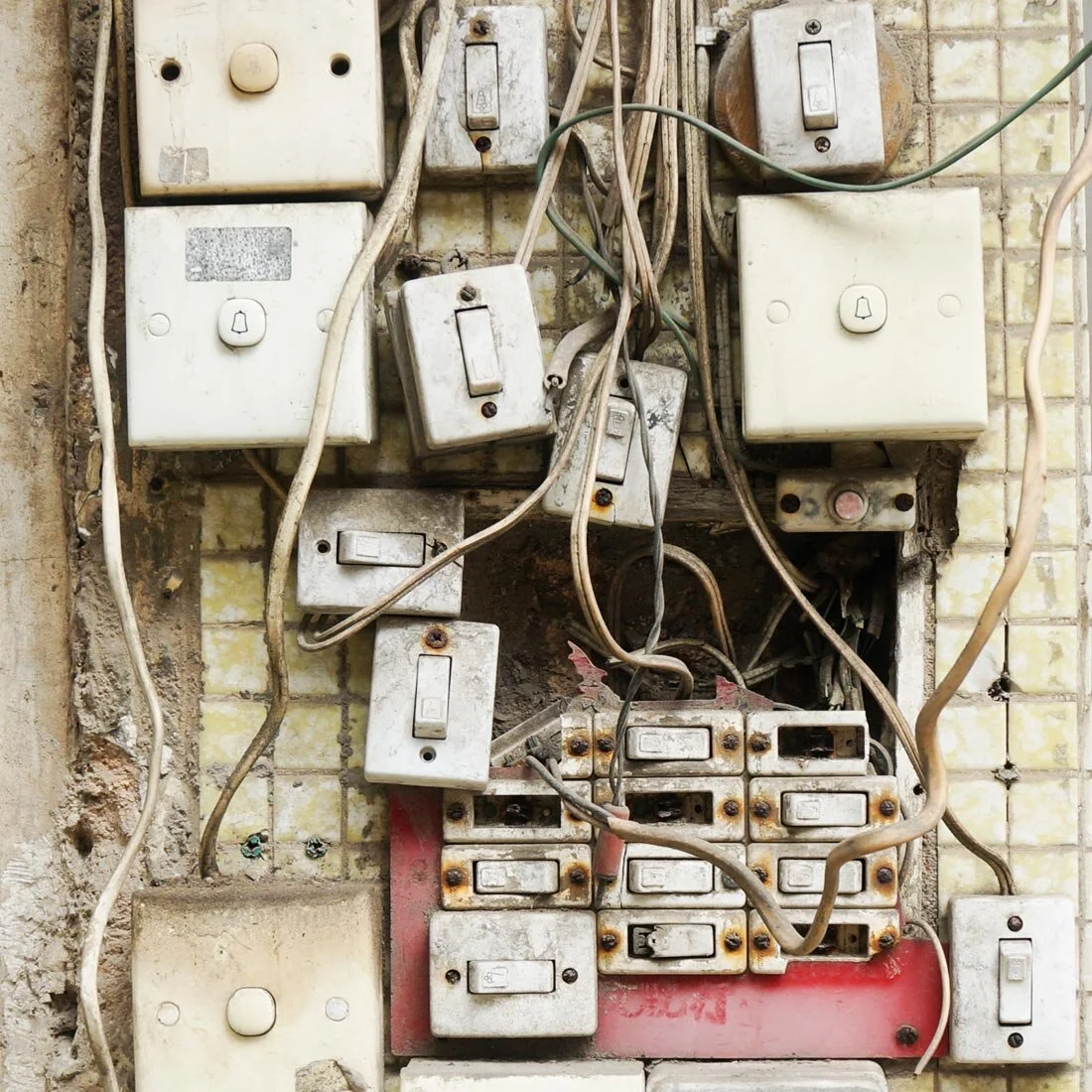Top 10 Electrical Tips
Electrical products are the top cause for accidental fires in British property. This, together with such a rich mixture of architectural styles and heritage varying considerably in general repair is certainly something to be mindful of when living or working in Soho and the West End of London.
Both residents and businesses in this part of central London can face a wide range of electrical problems whether you’re based in a period property or a newly developed building.
The following advice and 10 electrical tips aim to help you prevent and minimise electrical problems. Electricity is potentially a very hazardous utility. If you have any doubts at all regarding any aspect of a query, fault, or problem then please CONTACT US for either remote or personal assistance before continuing to proceed with any aspect of your electricity supply.
1. REMOVING PLUGS
Don’t remove a plug from a wall socket by pulling on the lead; remove by holding the plug instead. By tugging the lead it may damage the plug, the socket or the appliance itself. Periodically check each element to see if they are hot to the touch.
However careful you may be, over time wiring does wear out which can cause electrical fires to start in wall cavities. Because it’s not immediately obvious it can cause significant damage and be very dangerous indeed.
2. OVER USING ADAPTERS
Never plug an adapter into a second adapter and avoid using adapters overloaded with plugs. Even if you have to use an adapter make sure it’s the bar type that has it’s own fuse.
If you have a constant requirement for more power sources at a location in your home or office, spend a little extra money and have a permanent solution installed where it’s required. Visually it will make an immediate improvement together with minimising tripping hazards along with the obvious fire risk.
3. POWER DOWN APPLIANCES
Switch off any electrical items such as electric games, televisions and other appliances that are not in regular use at the socket. Ensure that when you are away from the house for any length of time you unplug and switch off all electrical appliances as items left plugged in can be a fire risk and waste energy even if left in standby mode. Before going to bed, make a habit to check all electrical items have been properly powered down.
4. WATER
Do not use any electrical items in the bathroom or around water unless they are designed for a specific purpose eg. shavers and electric toothbrushes. Even when using these products take care not to get items wet and avoid plugging and unplugging objects with wet hands.
Avoid contact with electrical appliances or switches with wet hands, make sure electrical products in your bathroom do not fall into water. Keep extension leads and portable equipment away from baths, showers and basins or preferably out of the bathroom altogether.
5. EXPOSED WIRING
Do not use items with damaged cables as very often it can result in exposed wires. Check all elements regularly and either repair or replace when necessary. Examine all electrical leads and cabling at regularly occurring intervals and discard any which may be worn or do not fit comfortably into a socket. Never secure a lead or any cable in place with nails, tacks, staples or cellotape. Resist the temptation of running cables or leads under carpets, floorboards or skirting boards which might result in overheating.
6. DAMAGED SOCKETS
Never use damaged sockets, switch off the socket and replace it immediately. A flickering switch or a blown fuse are symptoms of possible electrical issues one of which may be a socket that is not functioning properly.
Arcs, sparks, a buzzing noise or a distinctive smell in the location of a switch or electrical fixture is a sure sign of a potential equipment problem.
7. AVOIDING SPILLAGES
Avoid placing water or other liquids on top of electrical products. The majority of us may use a fridge, washing machine or a microwave oven as a worktop. It’s potentially very hazardous if water, fluids or any liquids spill into slots of a unit which could result in a short circuit…or worse.
Do not allow electric leads or cables to trail over kitchen appliances like toasters or ceramic hobs as they are potential hazards of the worst kind. Never insert any object into a toaster if it is plugged into a socket and switched on and especially if it’s made of metal. While using an electric kettle, do not fill it up when still plugged into a socket.
8. ELECTRICAL FIRES
Never use water to extinguish an electrical fire. Make sure you have approved fire extinguishers in your home, office or business and you know how to use them correctly. Ensure everyone in the family home, office or business knows how to manually turn off the electricity at the main fuse box in the event of an electrical fire.
9. CORRECT WATTAGE
Use the correct recommended wattage of light bulb for all light fittings. Using an incorrect bulb can lead to frequently blown bulbs and even an electrical fire in extreme cases. If you don’t know the correct wattage, contact the manufacturer of the bulb, lamp or fixture.
10. CIRCUIT BREAKERS
A circuit breaker is one of the most important elements regarding your electricity supply and needs to be maintained at all times. Ensure all fuses are the correct size and current rating for the circuit.
If you have to repeatedly replace fuses, reset trip switches, experience lights flash on and off or dimming on their own your circuit breaker needs to be inspected as soon as possible.
Please don’t hesitate to CONTACT US as we will be delighted advise and assist with any queries you may have. We are electricians based in Soho meaning we’re probably within walking distance of you if you live or work within the square mile of Soho or West End of London.

